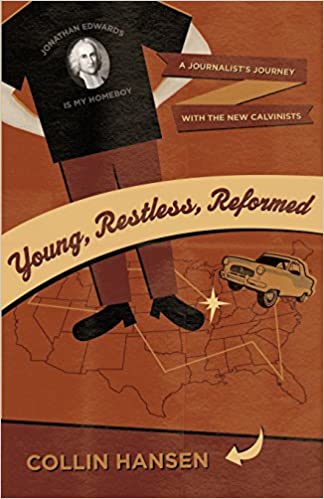How we love to hear of souls being saved and lives turned around by the gospel of Jesus Christ. Up and down the land, in our churches and communities we preach to this end — that sinners will be converted and built up in ‘the grace of our Lord Jesus Christ’.
Jesus said there is joy in the presence of the angels of God over one sinner who repents. How much more, then, when multitudes are converted and brought into the family of God in times of revival. Such spiritual awakenings are not common in our day but they do occur and are, perhaps, all the more precious for their rarity.
Those who study the revivals of the past often comment on the state of the church and society before, during and after these awakenings. And it is a matter of historical fact that times of economic uncertainty and gloom — such as those we face today — have sometimes been the seed-bed of spiritual revival as men and women turn to God in their distress.
The 1857 revival
Consider this strikingly relevant example. The following extract comes from an article by John Thornbury printed in Evangelical Times in September 2007.
‘In 1857, The Old Dutch North Church at Fulton and Williams streets in New York City was about to close. Located near the city centre in a depopulated area, it seemed to have little prospect of growth. Jeremiah C. Lanphier decided to make one last attempt to keep the church open and advertised a lunchtime prayer meeting.
‘He set a date for businessmen to meet at noon for prayer on the third floor of the old church. The first meeting was 23 September 1857. Outside was a placard which read, “Prayer Meeting from 12 to 1 o’clock — stop 5, 10, or 20 minutes, or the whole hour as your time admits”. The tall, middle-aged evangelist duly climbed the creaky stairs to the third floor of the old church building in the heart of New York, sat down and waited.
‘By 12.15 not a soul had come. Another ten minutes and still he sat alone. But then at 12.30 he heard steps on the stairs. A man came in to pray, and then another, and still another until eventually six people gathered … This encouraged Lanphier to schedule another meeting the following Wednesday at the same time. Twenty showed up … and at the third there were forty. He was encouraged.
‘Since the prayer meeting seemed to be satisfying a real need he decided to hold it every day. On the very day of the third prayer meeting, 14 October 1857, America was hit by the worst financial panic in its history. Businesses and banks collapsed. Men by the thousands lost their jobs and wandered the streets. Families went hungry. It was a grim time when the need for God’s help was apparent to all.
‘And call upon God they did. This simple prayer meeting, started in desperation by a lay evangelist, was the beginning of what has been called “the last national revival in the United States”. Before it was over, an estimated one million people had been swept into the kingdom of God’.
Times of refreshing
The movement was not confined to the USA. While the revival of 1857 was turning thousands to God in America, a great time of divine grace was falling on Great Britain. The work continued through the year 1859. As C. H. Spurgeon joyfully notes in the introduction to his sermons of that year: ‘The times of refreshing from the presence of the Lord have at last dawned upon our land’.
Of course, God could have brought these people to himself by any means, but he chose to bring down the American economy, with all the hardship that entailed, to stir up his people and gather his elect. In such ways God demonstrates his sovereignty, accomplishes his eternal purposes and sets his value on the souls of men.
What does this mean for us today? It means that while the year 2009 is beginning in the economic doldrums and times are tough for everyone, Christians trust that their Saviour knows exactly what he is doing and is doing it exactly as he planned.
Britain’s economic woes
Nationally and internationally, the present economic downturn is perceived as totally bad. And indeed, growing numbers are suffering unemployment, rising living costs and falling values of assets like house, savings and investments. Christians suffer like everyone else.
A young man loses his job because his firm goes bust. An elderly couple want to move to a Christian retirement home but are trapped in a house they cannot sell. A couple with a baby struggle to meet their increased mortgage payments. We do not minimise the private anxiety these providences bring.
Yet God knows. And not only does he know, but we believe that he has also ordained this recession because it is precisely what is required to accomplish his promise that all things work together for the individual and corporate good of his people.
Should we not pray that God would use this time of economic uncertainty to shatter men’s self-confidence — causing them to ‘seek the Lord while he may be found and call on him while he is near’ and bringing home his wandering sheep to Christ?
Far from being discouraged at such a time as this, let us redouble our efforts to make Christ known in our communities, calling upon the God of all grace to gather his elect and usher them into his kingdom in their hundreds and thousands!
Over-optimistic? We think not. Our Lord has done it before.
Perhaps in years to come we shall look back on the hard times of 2009 and marvel at the wondrous work God was doing right before our eyes. And if at present we struggle to discern his hand in current trials, let us pray that he will teach us to trust in him at all times for his sovereign grace and life-sustaining power.




















